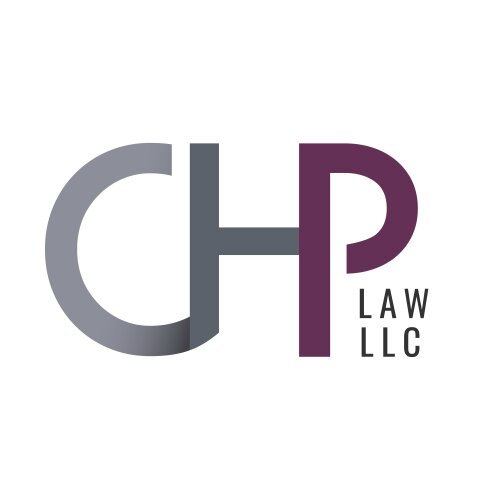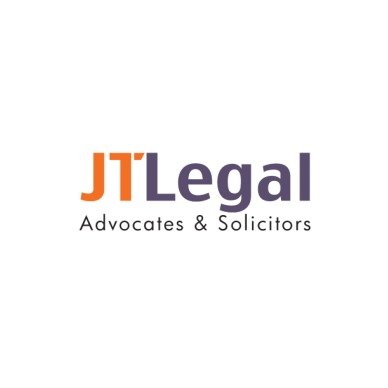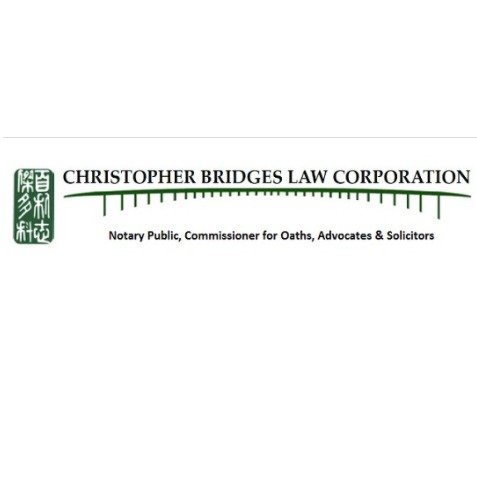Best Acquisition / Leveraged Finance Lawyers in Singapore
Share your needs with us, get contacted by law firms.
Free. Takes 2 min.
Or refine your search by selecting a city:
List of the best lawyers in Singapore
About Acquisition / Leveraged Finance Law in Singapore
Acquisition and leveraged finance refers to the use of borrowed capital for financing the purchase of companies or business assets. This type of financing is often crucial in mergers, acquisitions, management buyouts, and private equity deals. In Singapore, acquisition and leveraged finance plays a significant role in facilitating business growth and market expansion, supporting both local and cross-border transactions. The legal landscape is shaped by Singapore's position as a major financial hub, offering a robust legal framework that promotes certainty, enforceability, and flexibility for parties engaging in such transactions.
Why You May Need a Lawyer
Seeking legal advice in acquisition and leveraged finance is essential due to the complex and high-value nature of these transactions. You may require a lawyer in situations such as:
- Structuring the financing for a merger or business acquisition
- Advising on regulatory requirements and compliance
- Negotiating and drafting loan or security documentation
- Performing risk assessment and due diligence on target companies
- Resolving cross-border financing legal issues
- Handling disputes or defaults related to finance arrangements
- Ensuring tax efficiency in transaction structuring
- Managing confidentiality, intellectual property, and employment considerations in acquisitions
A specialist lawyer safeguards your interests, ensures that legal documents accurately reflect commercial dealings, and helps you avoid pitfalls that could jeopardize the transaction or result in regulatory penalties.
Local Laws Overview
Singapore's legal framework for acquisition and leveraged finance is well-established and internationally recognized. Key aspects include:
- Banking and financial institutions are regulated by the Monetary Authority of Singapore (MAS), which oversees lending practices and financial stability.
- The Companies Act sets rules for corporate structuring, share transfers, and approval requirements for significant transactions.
- Security over assets is governed by laws related to fixed and floating charges, mortgages, and assignments. Proper registration is crucial for enforceability.
- Foreign investment and cross-border financing are generally permitted, but may involve notification or approval requirements, especially in regulated sectors.
- Takeover regulations, particularly for public companies, are governed by the Singapore Code on Takeovers and Mergers.
- Tax laws play a vital role in structuring deals efficiently, covering issues such as stamp duties, withholding tax, and transfer pricing.
- Enforcement of security interests and syndication among lenders is supported by Singapore's modern insolvency and restructuring laws.
- Legal opinions are often required to satisfy lenders and investors concerning the validity and enforceability of financing arrangements.
Frequently Asked Questions
What is acquisition finance?
Acquisition finance refers to the funding used to purchase a company or its assets. This can include loans, bonds, or other financing methods, often involving security over assets or shares of the target company.
What is leveraged finance?
Leveraged finance involves using significant amounts of borrowed funds, leveraging the assets of the company being acquired or its cash flows to secure the financing. The goal is to increase potential returns for investors, though it also increases risk.
How are acquisition and leveraged finance deals commonly structured in Singapore?
Deals can involve a mix of debt (such as term loans, mezzanine finance, and revolving facilities) and equity. Legal advisers help tailor structures based on the parties' needs, regulatory compliance, and tax considerations.
What types of security can lenders require in Singapore?
Common forms of security include fixed and floating charges over assets, legal mortgages on property, share charges over target companies, and assignments of key contracts or receivables.
Are there restrictions on foreign investors obtaining acquisition finance in Singapore?
Generally, foreign investors can access acquisition finance in Singapore. However, sector-specific regulations may apply, and foreign exchange controls are minimal. Some industries, such as telecommunications and broadcasting, may have restrictions.
What role does due diligence play in acquisition finance?
Due diligence is critical. It involves legal, financial, and operational checks to identify risks, confirm ownership and value of assets, verify compliance with laws, and ensure there are no undisclosed liabilities.
What regulatory approvals might be required?
Depending on the type of transaction, approvals may be needed from regulators such as the MAS, the Competition and Consumer Commission of Singapore, or sector-specific authorities. Public company acquisitions are subject to takeover rules.
What are the main risks in leveraged finance deals?
Risks include over-leveraging the company, regulatory non-compliance, unexpected contingent liabilities, enforceability of security, and changes in market conditions that may affect the ability to repay.
What happens if the borrower defaults on a leveraged loan?
In case of default, lenders may enforce their security, which could involve taking over assets or the company shares. The process follows the law and contractual terms, and legal advice is crucial for both sides in such scenarios.
How can a lawyer add value in acquisition and leveraged finance transactions?
A lawyer provides guidance on legal risks, drafts and negotiates agreements, ensures regulatory compliance, assists with due diligence, structures the deal for tax efficiency, and manages the process from negotiation through to completion.
Additional Resources
Individuals and businesses can refer to the following for further information:
- Monetary Authority of Singapore (MAS) - Regulator for banking and finance activities
- Singapore Exchange (SGX) - For information on public company acquisitions and listings
- Accounting and Corporate Regulatory Authority (ACRA) - Resources on company laws and registration
- Singapore Law Society - Directory of lawyers specializing in banking and finance
- Insolvency and Public Trustee’s Office - Guidance on security enforcement and restructuring
- Competition and Consumer Commission of Singapore - For merger notification and competition issues
- International law firms and professional advisers with Singapore offices often publish guides on the latest developments in acquisition and leveraged finance
Next Steps
If you are considering an acquisition or seeking leveraged finance in Singapore, the key first step is to consult with a lawyer who specializes in this area. Identify your goals and gather preliminary information about the target company or asset. Your lawyer can then assess the transaction, advise on the best structure, and guide you through each stage, including due diligence, negotiations, regulatory clearances, and deal closing. Early legal advice can help identify challenges, ensure compliance, and maximize value for all parties involved. To proceed, contact a reputable law firm or utilize a local lawyer directory to find a suitable acquisition or finance specialist.
Lawzana helps you find the best lawyers and law firms in Singapore through a curated and pre-screened list of qualified legal professionals. Our platform offers rankings and detailed profiles of attorneys and law firms, allowing you to compare based on practice areas, including Acquisition / Leveraged Finance, experience, and client feedback.
Each profile includes a description of the firm's areas of practice, client reviews, team members and partners, year of establishment, spoken languages, office locations, contact information, social media presence, and any published articles or resources. Most firms on our platform speak English and are experienced in both local and international legal matters.
Get a quote from top-rated law firms in Singapore — quickly, securely, and without unnecessary hassle.
Disclaimer:
The information provided on this page is for general informational purposes only and does not constitute legal advice. While we strive to ensure the accuracy and relevance of the content, legal information may change over time, and interpretations of the law can vary. You should always consult with a qualified legal professional for advice specific to your situation.
We disclaim all liability for actions taken or not taken based on the content of this page. If you believe any information is incorrect or outdated, please contact us, and we will review and update it where appropriate.
Browse acquisition / leveraged finance law firms by city in Singapore
Refine your search by selecting a city.















